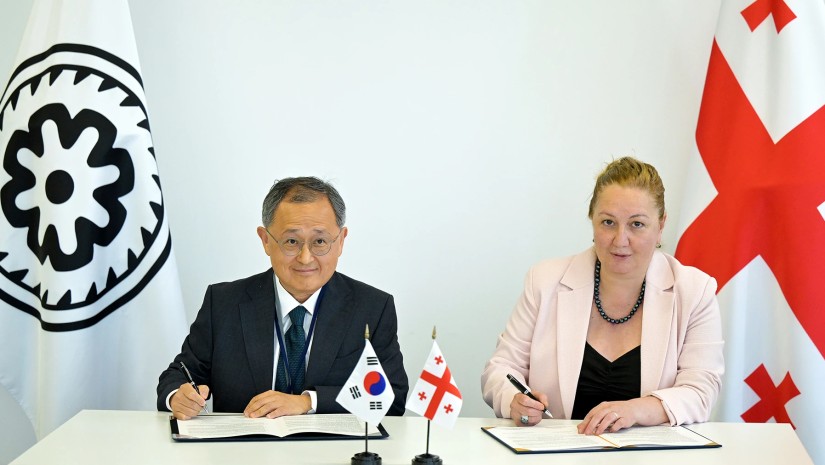Tbilisi (GBC) - The National Bank of Georgia (NBG) and the Bank of Korea have officially launched a collaborative project aimed at promoting the development of cashless payments in Georgia. This initiative is implemented under the framework of the Knowledge Partnership Program (KPP) a knowledge-sharing platform between the two central banks and is designed to support the transition toward a more advanced and inclusive digital payments ecosystem.
The foundations of this cooperation were laid in 2024 during the Asian Development Bank (ADB) Annual Meeting, where NBG Governor Natia Turnava met with the Governor of the Bank of Korea. During that visit, a Memorandum of Understanding was also signed between the NBG and the Korea Financial Telecommunications and Clearings Institute (KFTC), reinforcing bilateral commitment to closer cooperation.
As part of this deepening partnership, the initial phase of the project will focus on launching a targeted initiative to support cashless settlements in Georgia. To mark the occasion, a delegation from the Bank of Korea and KFTC arrived in Georgia to begin the joint work.
At the outset of the visit, a cooperation agreement was signed between the National Bank of Georgia and the Bank of Korea, formally confirming their partnership in the project. The document was signed on behalf of the NBG by Vice Governor Ekaterine Galdava.
As Vice Governor Galdava noted, the development of cashless payments is of strategic importance for Georgia, particularly at a time when the country is actively modernizing its Real-Time Gross Settlement (RTGS) system and preparing to launch instant payment solutions. In this context, collaboration with leading central banks in the region is crucial.
Importantly, Georgia is the first non-Asian country with which the Bank of Korea and KFTC have partnered on the development of cashless payment systems.
The project builds on the Bank of Korea’s successful experience in payment system modernization and international best practices. Key objectives include supporting technological innovation, analyzing consumer behavior and infrastructure-related challenges, and promoting financial inclusion, particularly in regions.
During the visit, the Korean delegation is expected to meet with representatives from banking and fintech associations, commercial banks, payment service providers, and fintech companies.
In subsequent phases, the project will involve in-depth assessments and evaluations, based on which concrete policy, regulatory, and technological recommendations will be developed to support the future evolution of Georgia’s payments landscape.
This partnership is expected to make a significant contribution to the development of Georgia’s payment infrastructure, enhance access to financial services, strengthen transparency, and promote the efficient functioning of the broader payment ecosystem.





















